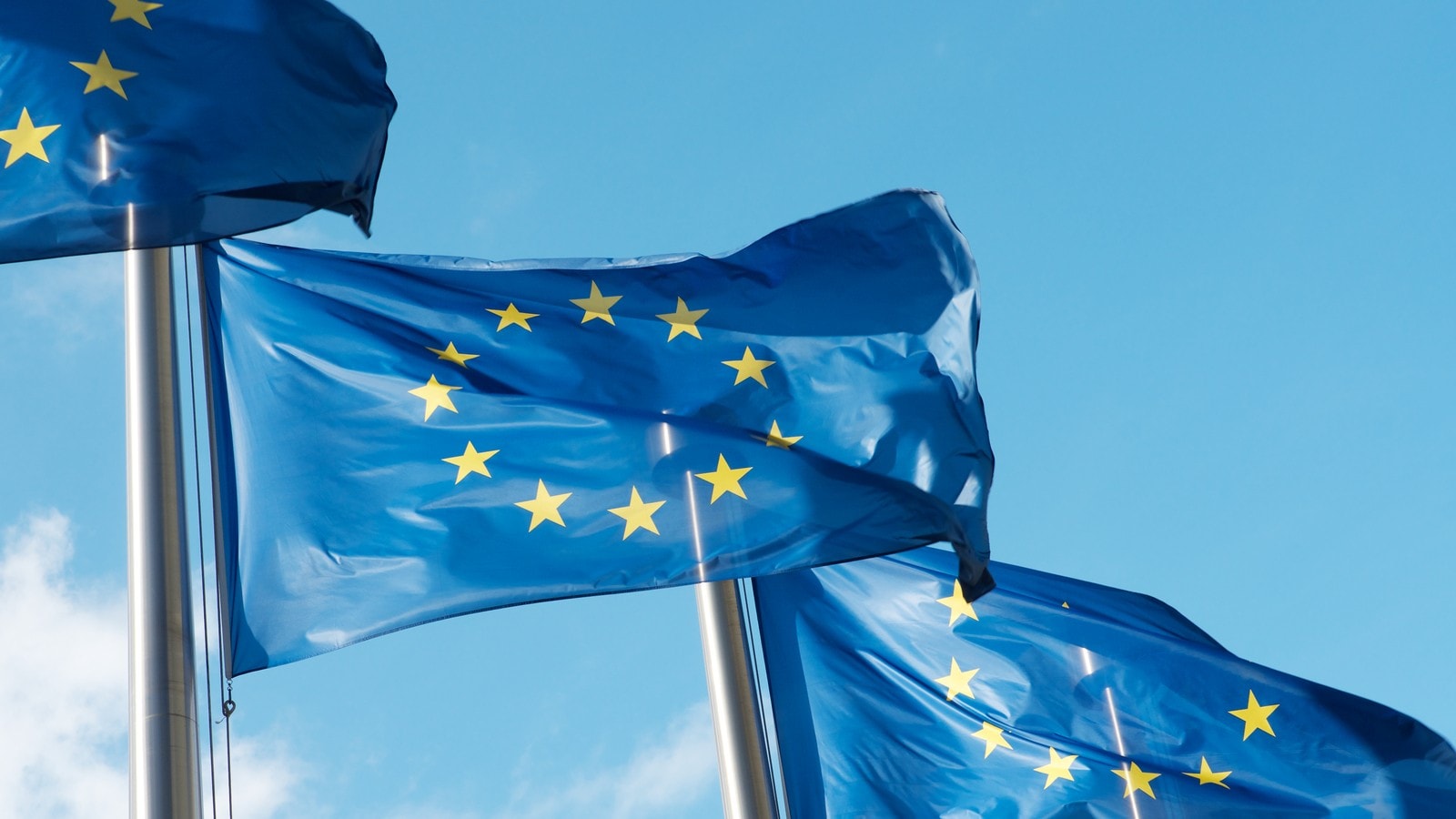EU Customs Reform
On Wednesday, 17 May 2023, the European Commission published a proposal to reform the customs setup of the European Union. This represents the most ambitious and comprehensive reform of the European customs union since its inception in 1968. In doing so, the European Commission has particularly focused on three key ambitions:
- A new partnership with business
- A smarter approach to customs checks
- A more modern approach to e-commerce
These ambitions are supported by a comprehensive revision of the Union Customs Code (UCC) and associated provisions on how the European customs union will operate in the future.

Structural changes
We have summarised the key structural updates as follows:
1) Centralisation of the EU’s Customs function and greater uniformity in the application of rules to ensure a more consistent experience for traders via:
- The creation of a central EU Customs Authority with responsibility for central risk management and which will issue control recommendations to National Customs Authorities for implementation
- Greater uniformity of EU customs rules – e.g. setting out a minimum EU-wide penalty regime rather than giving Member States autonomy to set and implement penalties.
2) An overhaul of customs legislation to ensure e-commerce is dealt with in a simplified manner via:
- Removal of the €150 low value consignment customs duty relief
- Introduction of new, simplified bucket-tariffs for imports of distance sales goods
- New concepts of “importer” and “deemed importer” to align customs rules with VAT rules on distance sales.
3) Streamlining customs formalities and the introduction of the EU Customs Data Hub:
- The Data Hub will be a centralised EU Customs IT structure instead of 27 separate systems – ultimately a single interface for traders dealing with customs:
- The Data Hub will combine data from the Single Window, ICS2, digital product passport to ensure central oversight of EU customs data
- The focus will be on traders and other stakeholders holding required customs data being to be able to provide firsthand, reusable data to simplify clearance.
How can PwC assist you in preparing for the proposed changes?
PwC has a dedicated team of customs specialists who possess extensive knowledge and experience in the legal, technical, and operational aspects of customs. Consequently, we have been selected by the European Commission to assist them in the development of the Proposal (through the study "An integrated and innovative review of the EU rules governing e-commerce transactions from third countries from a customs and tax perspective", as referenced in the Proposal).
This has given us a profound understanding of the background and intention behind the proposal. It places us in an extremely favourable position to assess the implications of the EU Customs Reform for businesses and to assist in taking the appropriate measures to comply with the proposed legislation, as well as to capitalise on the opportunities it presents.
Of course, we do this in collaboration with our network of experts in other areas, such as VAT, Transfer Pricing, digitalisation, sustainability, and security, who can provide cross-sectoral and multidisciplinary perspectives on customs issues.
Legal changes
In addition to the proposed structural changes outlined above, a number of key legal changes have been proposed which may alter the ways in which traders interact with the customs process:
- Removal of customs duty relief
- Deemed Importer
- Definition for Importer
- Combined Nomenclature
- Indirect Representative for customs matters
- Trust & Check
Removal of customs duty relief
Removal of the customs duty relief applicable to goods with an intrinsic value not greater than €150 and update to the VAT simplification mechanism
Stemming from the ambition to have a more modern approach to e-commerce, the Commission has determined that the current customs duty relief, known as Low Value Consignment Relief, which is applicable to specific goods (excluding tobacco, alcohol and perfume or toilet waters) with an intrinsic value not greater than €150, is to be removed.
In line with the removal of this relief, the current VAT simplification mechanisms have also been updated and enhanced as follows:
- An extension of the ‘deemed supplier regime’ to capture all distance sales of imported goods from third territories or third countries irrespective of value
- Removal of the €150 limit for IOSS and Special Arrangements and extension of these schemes to capture all distance sales of imported goods from third territories or third countries irrespective of value, but not including excise goods.
Deemed Importer
Introduction of the concept of “Deemed Importer” within the customs legislation
This new concept will hold certain ‘suppliers’ and ‘platforms’ accountable for completing the customs formalities related to the import of e-commerce goods. The addition of this new party within the customs legislation closely aligns the customs law with the current VAT rules surrounding the ‘deemed supplier’ provision applicable to electronic interfaces.
However, the introduction of the deemed importer will affect a greater number of suppliers than the corresponding VAT provisions and will not be limited solely to electronic interfaces facilitating the supply of goods.
In effect, all suppliers that are involved in the distance sales of goods and are authorised to use IOSS, including both platforms and non-platform online retailers, will be considered to be a deemed importer and must fulfil the associated obligations, including:
- The calculation and collection of customs duty and import VAT at the point of sale rather than the point of import
Definition for Importer
Inclusion of a definition for Importer within the customs legislation
Within the current UCC and all previous customs legislation, there has been no definition of “importer” in EU customs law. Historically, the obligations attached to a more amorphous “declarant” and its representative. However, the recast UCC will now provide a clear definition of an importer and states it must be established in the EU and have the power to determine the goods are to be brought into the EU. This creates greater clarity around accountability for customs debts and compliance obligations.
Combined Nomenclature
Restructuring of the Combined Nomenclature (CN) to introduce new Tariff Buckets for certain e-commerce supplies of goods
The EU’s Common Customs Tariff will be amended to allow importers, who are supplying goods which qualify as distance sales of goods imported from third territories or third countries, to calculate the customs duty based on a simplified fixed duty rate.
Where this simplification is availed of, there are five applicable duty rates; 0%, 5%, 8%, 12% and 17% which will be defined based on the Harmonised System chapter classification (e.g., the first 2 digits of the commodity code). The use of this simplification eliminates the need for detailed tariff classification or country of origin information.
This mechanism is optional and the simplified tariff buckets can be ignored if preferential tariffs are available.
Indirect Representative for customs matters
Enhanced responsibility for parties acting as an Indirect Representative for customs matters
There is a clarification regarding the responsibilities of indirect representatives. Currently, indirect representatives are held jointly and severally liable for a customs debt. However, this responsibility is now expanded, and indirect representatives will be required to take on all the compliance obligations related to an importer or exporter in the EU and so, in practice, will be considered as the importer or exporter in their own right.
While in practice indirect representatives had an obligation to comply with all aspects of the customs law, this will now be clearly provided for. As such, the role of an indirect representative will now carry more clearly defined responsibilities (including potential penalties for compliance breaches).
Trust & Check
Development of a new Trust and Check trader authorisation expanding on the established Authorised Economic Operator (AEO) program
The introduction of a new “Trust and Check” trader status will be made available to especially trusted traders and will provide a “green lane” for customs clearance for those traders without formal customs intervention, provided certain conditions are met.
In a divergence from AEO, Trust and Check traders must have conducted regular customs operations in the course of business for at least 3 years prior to the application. Additionally, such traders will be required to allow the customs authorities access to their systems and real-time data but this will allow for goods to be released without the prior intervention of the customs authorities.
Read more about the Trust and Check trader

What to take into account during implementation?
The proposed recasting of the UCC is a significant step towards modernising the EU Customs Union to account for the developments in data analysis and e-commerce and to create a more consistent, streamlined customs experience. While the timeline for implementation is still some way in the distance, all parties involved in importing into the EU should consider how the proposed changes will affect them.
The implementation of the “deemed importer” provision will place more responsibility on e-commerce suppliers but should offer a better customer experience as fully landed costs are displayed at purchase and customs controls are eased.
Introduction of the “Trust and Check” authorisation and the associated customs clearance benefits shows real progress by the Commission and an understanding and willingness to enhance the relationship between trusted traders and customs authorities
Implementation timelines
A significant point within the implementation timeline will be the publishing of the Implementing and Delegated Acts which will contain the detailed steps on how the new proposals will be implemented. It is expected that these legislative texts will not be published until 2024 at the earliest. Further to this, the following key timelines should be noted in respect to the proposed new UCC:
- 2028: Introduction of the EU Customs Authority and the proposed e-commerce changes
- 2032: Introduction of the EU Customs Data Hub for Trust and Check traders
- 2035: Introduction of the EU Customs Data Hub for non-Trust and Check traders
- 2038: Mandatory use of the EU Customs Data Hub for all traders
Contact us

Claudia Buysing Damsté
Partner, International Trade, Customs, Sustainable supply chains, PwC Netherlands
Tel: +31 (0)65 103 04 63

Suzanne Bras
Senior Manager Customs & International Trade, PwC Netherlands
Tel: +31 (0)65 395 86 76





Ekaterina Rassadkina
Senior Manager, Customs & International Trade, PwC Switzerland
Tel: +41 58 792 00 44














